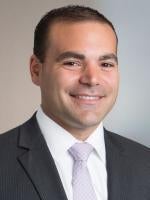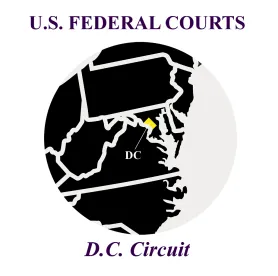General Counsel of the National Labor Relations Board, Jennifer Abruzzo, is already on her way to accomplishing one of the objectives she laid out in her recent Advice-Memorandum 21-04 (discussed here earlier on this blog). In the GC’s memo, she identified a number of Board decisions to re-evaluate, including Bexar County Performing Arts Ctr. Found., 368 NLRB No. 46 (Aug. 23, 2019). This Trump-era NLRB decision limited the circumstances in which a contractors’ employees could access private property of another employer to engage in Section 7 activity. On August 31, 2021, the D.C. Circuit Court overturned the 2019 Bexar County access to property standard. Local 23, American Federation of Musicians v. NLRB, No. 20-1010, at *6 (Aug. 31, 2021).
Procedural History: Bexar’s 2019 Standard
The issue in Bexar County arose after the Bexar County Performing Arts Center blocked musicians who work for a symphony that performs at their auditorium from protesting a ballet company inside the arts center. The musicians are represented by an American Federation of Musicians affiliate. The NLRB ruled that a property owner may lawfully prohibit the off-duty employees of its on-site contractors (or licensees) from accessing its property to engage in Section 7 activity unless (1) the off-duty employees regularly and exclusively work on the property, and (2) the owner of the property cannot show the off-duty employees do not have one or more reasonable non-trespassory alternatives to communication their message. Bexar County Performing Arts Ctr. Found. 368 NLRB No. 46 at *3 (Aug. 23, 2019). The Board noted it would consider contractor employees to have worked “regularly” on the owner’s property only if the contractor regularly conducted business or performed services there. Id. The Board also defined employees to be considered to have worked “exclusively” on the owner’s property if they performed all of their work for that contractor on the property, even if they also worked a second job elsewhere for another employer. Id.
D.C. Circuit Court Holds that Board’s Decision is Arbitrary
The D.C. Circuit Court held that the Board’s decision is arbitrary in the way that it implements its new standard for determining when a property owner may prohibit an onsite contractor’s employees from conducting labor organizing activity on the premises. The Board held that the musicians did not work at the center regularly even though they performed there 22 weeks a year, but said that contract workers who weekly stock vending machines do regularly work there. The D.C. Circuit reasoned that this was arbitrary. Similarly, the D.C. Circuit held that the use of “exclusively” was also arbitrary because it could bar workers with substantial presence at a property if they do a small amount of work for the owner off property while granting it to workers with only a minimal, yet exclusive, presence.
The Court also took issue with how the NLRB applied the second part of the test, which requires property owners to show that workers had other reasonable means to communicate their message. Even though the Board held the burden was on the owner, it did not require Bexar County, the owner of the property, to prove that it had met the threshold.
The Court remanded the case back to the Board with its new-Democratic majority Board, noting that the Board may decide whether to proceed with a version of the test it announced and sought to apply in this case or develop a new test altogether.
Takeaways
The NLRB in Bexar County sent a strong message that private property rights are paramount when it comes to non-employees and Section 7 rights, except in very limited circumstances. At the time of the initial NLRB decision, NLRB Chair Lauren McFerran dissented, cautioning that the ruling effectively eliminated important labor-law rights from employees who work on property owned by an entity other than their employer. With the D.C. Circuit’s ruling, the newly constituted Democratic majority of the NLRB will have a chance to undo the holding of the original Bexar case and will likely imposed a much more lenient standard consistent with Member McFerran’s dissent. As always, we will continue to keep you apprised of all the latest development at the NLRB.




 />i
/>i
